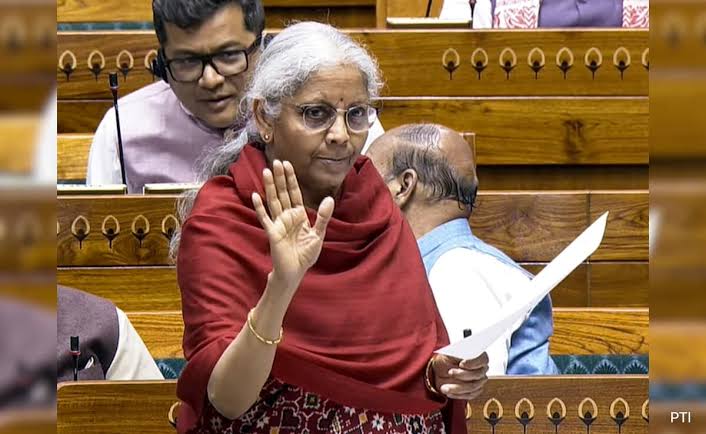New Delhi, February 13, 2025: Union Finance Minister Nirmala Sitharaman will introduce the much-anticipated Income Tax Bill, 2025, in Parliament on February 13. The proposed legislation seeks to replace the outdated Income Tax Act, 1961, which has grown increasingly complex over the decades due to numerous amendments. If passed, the new law will come into effect from April 1, 2026, ushering in a streamlined and modernized tax system. The bill will be referred to the Parliamentary Standing Committee on Finance for further discussion and consultations.
The need for a new income tax law stems from the fact that the current Income Tax Act has expanded to 298 sections, 14 schedules, and over 880 pages, making it cumbersome for taxpayers and professionals. The government aims to reduce compliance burdens, minimize legal disputes, and simplify tax provisions. A comprehensive review of the tax structure was announced in the July 2024 Budget, following which the Central Board of Direct Taxes (CBDT) formed an internal committee along with 22 sub-committees to study the existing framework. The government also sought public feedback in four key areas: simplification of language, reduction of litigation, ease of compliance, and streamlining tax provisions. Over 6,500 suggestions were received from taxpayers, professionals, and industry bodies.
One of the key highlights of the Income Tax Bill, 2025, is its compact and simplified structure. The new bill contains 536 sections, 23 chapters, and 16 schedules, significantly reducing the length and complexity of the existing law. Sentences have been shortened, legal jargon has been minimized, and tables have been introduced to make provisions related to TDS, presumptive taxation, salary components, and deductions easier to understand. The bill also eliminates ambiguous terms like “notwithstanding,” replacing them with simpler alternatives like “irrespective,” ensuring clarity in interpretation.
Structural changes include the removal of the term “assessment year,” replacing it with “tax year” to align taxation with the year in which income is earned. This move eliminates confusion between “previous year” and “assessment year,” which has often led to errors and misunderstandings in tax filings. Additionally, redundant provisions, such as those related to the defunct Fringe Benefit Tax, have been eliminated. Income categories that do not form part of taxable income have been shifted to dedicated schedules, making the framework more structured and transparent.
The bill also provides clearer guidelines for the taxation of Employee Stock Options (ESOPs), incorporating judicial precedents from the past six decades. This is expected to reduce disputes between employees and the tax department, offering more predictability for startups and corporate professionals who receive stock-based compensation.
Following its introduction in Parliament, the Income Tax Bill, 2025, will undergo scrutiny by the Parliamentary Standing Committee on Finance. The final version, incorporating necessary amendments, will be presented again for approval before being enacted. If cleared, the law will come into force from the next financial year, bringing significant changes to the way income tax is calculated and administered in India.
This reform marks a major step toward making India’s tax system more efficient, transparent, and taxpayer-friendly, addressing long-standing challenges while aligning with global best practices.

